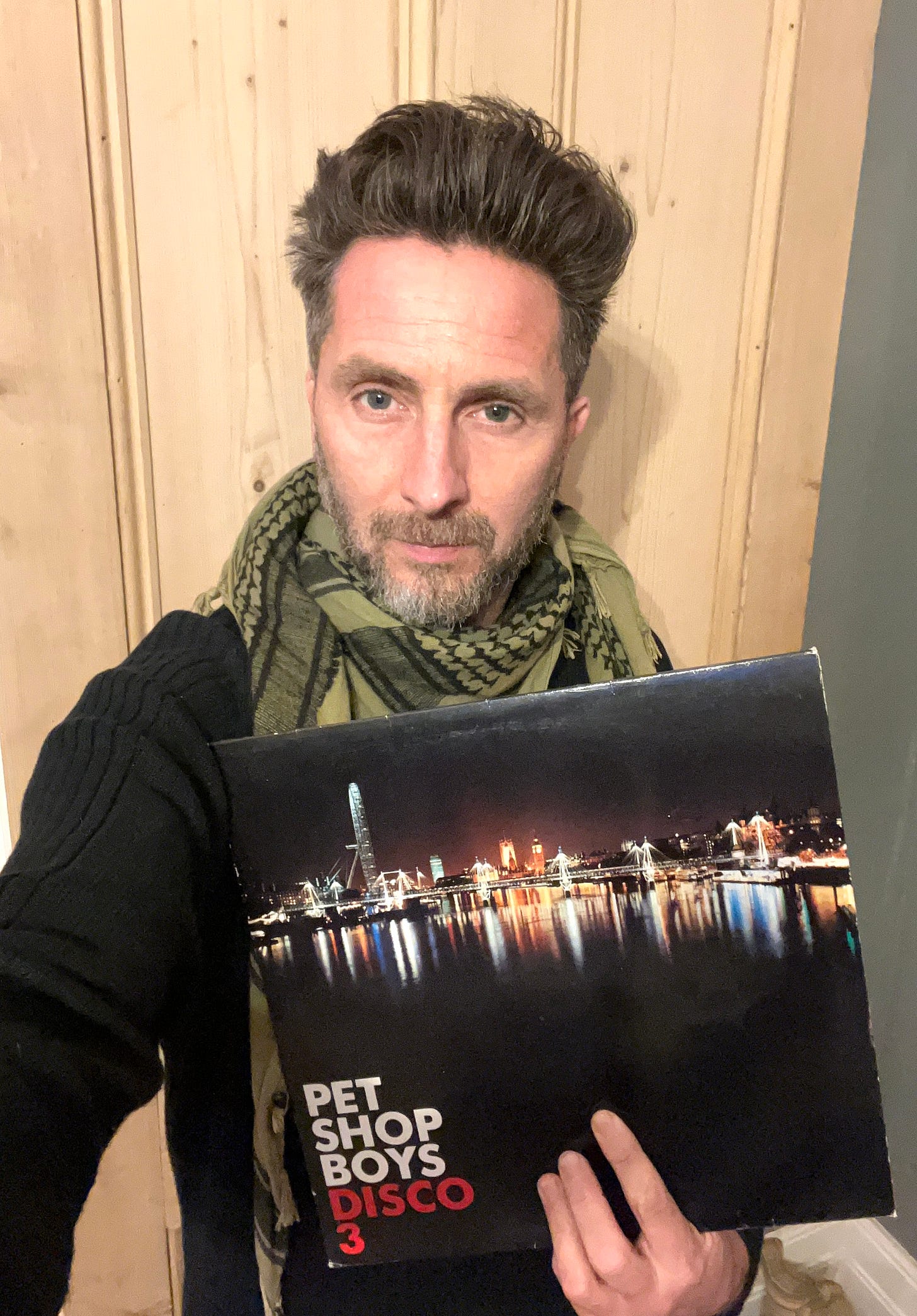Pet Shop Boys' album Disco 3 is 20 years old
To illustrate how culturally cutting edge this blog is it's a good time to consider an album by a well-known act that slipped under the radar 20 years ago. There won’t be many people blowing balloons for what felt like evasive action from Pet Shop Boys in February 2003 after the underperforming acoustic (isn) album Release, when they surprised fans a more electronic collection barely a year later.
Perhaps, or rather probably (which sounds remarkably like a Pet Shop Boys song title), to stem the deflation of their career after the underwhelming Release album, Neil Tennant and Chris Lowe batted out a surprise continuation of their elegantly under-the-radar Disco album series. Following the car crash of Disco 2, where recent (at the time) pop masterpieces such as Can you forgive her? found themselves remixed with the sort of dismal chaos more associated with panicked military retreats, Disco 3 was a genuine breath of fresh air.
Release was the sound of Neil Tennant buying a new guitar via maudlin lovelorn tracks that actually sound better now than they did back in 2002 - well, apart from The night I fell in love, a solid enough tune mired by cringing lyrics about meeting Eminem. You choose and Here in particular tap a beautifully heartfelt romance that might have been lost in the electronic arrangements that so many fans missed.
In fact, Release could have been twice the album it was had they not delegated superior tracks to b-sides and made more use of Johnny Marr who appears on most tracks. It might have been better titled as Glum.
Autumnal is the word most used for their almost accidental 1990 masterpiece Behaviour, but Release was late autumn, where fallen leaves are uniform brown on the ground to pave the way for 4 months of arctic winds and horizontal rain. Realising their fans weren't buying into the unwelcome wintery half-arsed blast of Release, whilst themselves enjoying the now barely-recalled electro-clash scene of London, Pet Shop Boys had a brainwave. One of the finest tracks (and titles) on the LP was The Samurai in autumn (nicked from a review of their Nightlife tour in which they wore culottes) dispensed with the navel-gazing strumming and stapled a 4 to the floor beat over rave-inflected keyboard washes. It seemed a sensible launchpad for Disco 3.
Despite the vaguely pointless piano jazz bar version of London and its remix by electro-clash scene stalwart Felix da Housecat which fail to land, the album is an exhilarating clubland ride via offcuts, old songs and even an obscure Bobby O cover. Yes, that one, the New York producer they were so obsessed with that Tennant asked him to produce the original West End girls.
Despite the cover depicting London’s south bank by Wolfgang Tillmans there’s an echo of the excitement of New York that fuelled their debut album Please throughout Disco 3. The rushing clipped synths of Somebody else's business and the steely grind of If looks could kill (a refined version of their live rendition for a John Peel session no less) hit a mark they'd been reliably missing for years. It somehow put the cheesiness (not always unwelcome) of Go West to bed. This announced a deeper connection with the abandonment of riff stabs, sex, suspicion and privations.
The dreamy cover of Try in (in love with a married man), an old HI-NRG song no one had ever heard of, alongside Bobby O’s original artist Oh Romeo, shows a deft application of vocoded wistfulness flirting with the nocturnal throb of a bass-line in the vein of Love comes quickly that might have pushed the Release innuendo too far had it featured, although the musicianship of the Release period brought a definitive version of that early masterpiece onto a b-side, lighting the way for the band as a much improved live proposition.
We also get the deadpan intonation of Chris Lowe making his occasional vocal appearance on PSB records, this time reciting ‘Seventy, eighty, ninety, party’ (apparently a count -up to the millennium) on the somewhat laconic electronica of Time on my hands.
Other than London, the other song from Release making an appearance here is the, erm, well, aforementioned Here, which finds the 'boys' refining the often scattergun approach from 1999's Nightlife with a greater focus. It overcomes its prosaic extended introduction to reveal the epic yearning for home that anyone at work with a hangover can relate to.
In many ways, unlike the other three Disco albums, Disco 3 was perhaps pivotal (another PSB song title) in causing a change of direction. They went from minimal to maximal with the next album Fundamental that in further irony featured the rather marvellous and flawless electronic slink of Minimal. So, bravo to Disco 3, the oddly complete selection of odd-sods, cover version and remixes that waved frantically to stop the Pet Shop Boys from driving off a cliff.




